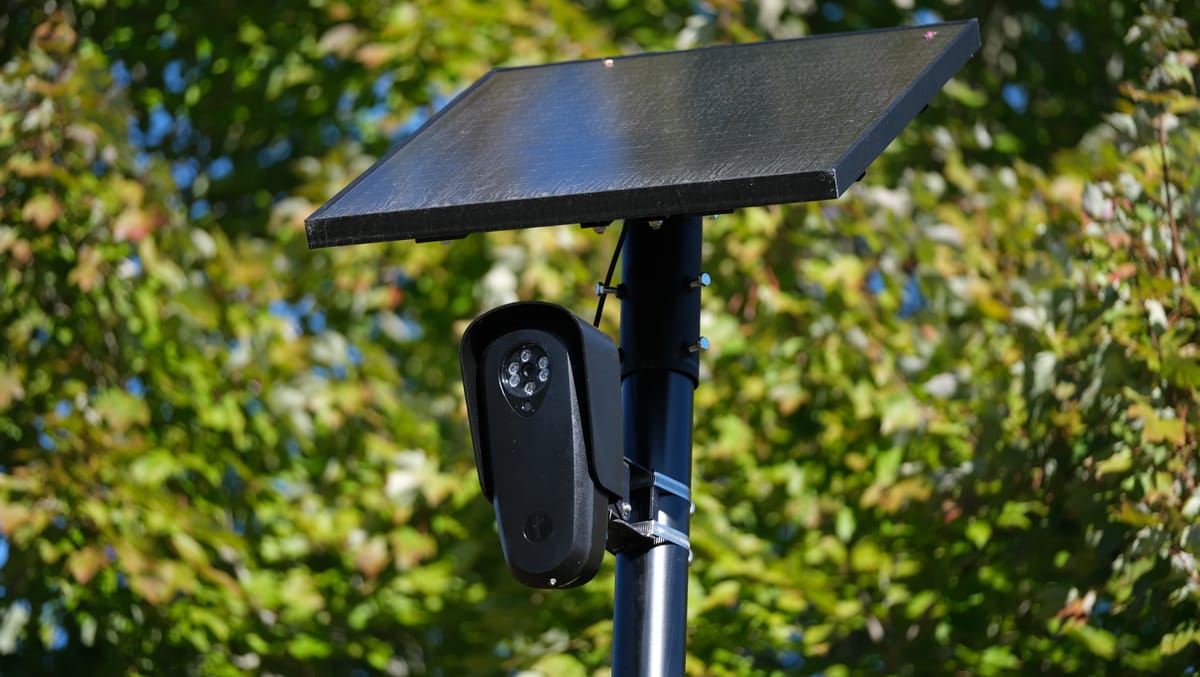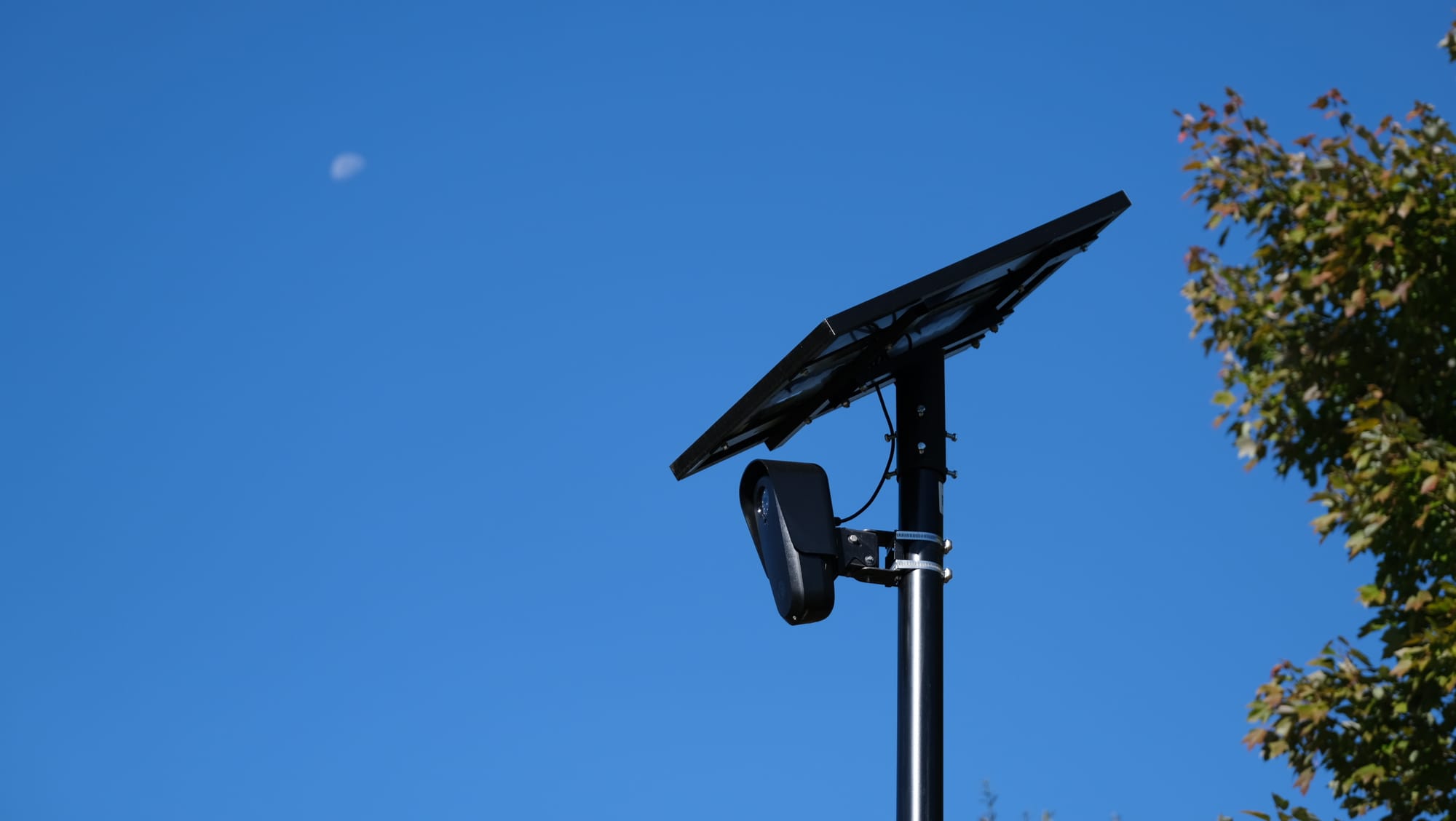Federal judge upholds Richmond’s use of license plate cameras

A man linked to a string of armed robberies in the Richmond area last year has failed to convince a federal judge that local law enforcement agencies violated his rights by relying on Flock Safety license plate cameras to track him down and arrest him.
The court case dealt with a network of connected Flock cameras that take photographs of all passing cars — regardless of whether they’re speeding or tied to any other unlawful activity — to record their license plate numbers for use by law enforcement.
At the time of the robberies in question in the spring of 2023, there were 188 of those cameras operating around the clock in the Richmond region, according to court documents, owned by both public and private entities. In the city proper, there were 66 cameras.
In an Oct. 11 ruling, U.S. District Judge Robert Payne concluded the Flock cameras aren’t so widespread they create an invasion of privacy by giving authorities all-encompassing data on where local drivers are going. The details of the case highlight the complex legal questions about emerging surveillance technology and how police should be able to use the trove of Flock-generated photos to try to solve crimes.
Attorneys for Kumiko Martin Jr., the defendant in the case who is facing several federal charges, had argued the camera network created constitutionally impermissible, Big Brother-style surveillance that allows law enforcement to track the movement of individual people without a warrant.
“The Flock camera system captures and retains not only Mr. Martin’s movements, but every single person traveling within its national web of linked cameras,” Carlos L. Hopkins, a Gentry Locke attorney representing Martin, wrote in a court filing. “Mr. Martin had a reasonable expectation of privacy that the whole of his travel would not be monitored or tracked by the government.”
The judge disagreed, ruling that the Flock technology merely enhances the ability of police to compile and access information that police and anyone else have always been able to see on public roads.
Despite Martin’s argument that privacy concerns will only grow as the technology expands, Payne said he was ruling on the facts before him and couldn’t try to predict “whatever might happen in the future.”
“As a society, we have come to expect the public surveillance of our vehicle as we travel on public roads,” Payne wrote. “We understand that, at any given time in public, a camera may take a picture of our vehicle.”
A blue gun and a gold Acura
The case began with a robbery that occurred in April of 2023 in South Richmond near the intersection of Dunston Avenue and 48th Street.
The victims described the robber as a man wearing a facemask and holding a blue gun. A private security camera from a nearby gas station captured footage of the robber leaving in an Acura sedan with distinctive stickers in the rear windows on both sides of the car. However, those images didn’t capture the vehicle’s license plate number.
A Richmond police officer used the Flock database to search for cars matching that profile. From the 30 days of data stored in the system, his search turned up 2,500 results. After reviewing those images, the officer found two photos of a gold Acura that appeared to have the same “unique stickers” in the windows, according to court records. With those photos, the police had a license plate number they didn’t have before.
One day after the Richmond robbery, the Chesterfield County Police Department began investigating an attempted breaking and entering and an armed robbery at two other convenience stores in the northern part of the county.
Security footage of the second robbery at a BP gas station also showed the perpetrator with a blue gun and an Acura. Chesterfield police used Flock to find images of an Acura in the area with the same license plate Richmond police had identified via Flock.
When the two agencies learned they were interested in the same vehicle, they started coordinating their investigations and traced the vehicle’s registration to an apartment in Chesterfield.
Officers eventually placed a GPS tracking device on the vehicle. After a third robbery occurred at a tobacco store that also involved a blue gun and a similar-looking Acura, officers checked the GPS data and discovered the vehicle was at the tobacco store during the robbery.
After watching the Acura a little longer, officers conducted a traffic stop and arrested Martin. According to court records, he admitted to robbing the tobacco store and being involved in two of the other incidents, but claimed it was a family member who carried out the attempted breaking and entering and robbery at the gas station.
Police obtained a search warrant for the apartment, according to court records, where they found a blue handgun.
Martin was only charged with the tobacco store robbery.
In making the case the Flock cameras are overly intrusive, Martin’s attorneys noted that the camera police relied on was located “directly at the entrance to the apartment complex to monitor, 24/7, anyone who leaves or arrives at the apartments.”

The bigger legal fight
Martin’s attorneys argued the use of Flock cameras violated his Fourth Amendment rights against unreasonable searches and seizures. They involved past federal court rulings that limited law enforcement’s power to conduct blanket aerial surveillance or use cell tower data to track someone’s movements, arguing the Flock camera systems create similar legal concerns.
Martin’s team filed a motion to suppress evidence related to the Flock cameras. His attorneys conceded that license plate information isn’t considered private, but said the systematic capture of that data for future use invokes the same privacy issues as other mass surveillance techniques.
The ruling in the Richmond case, one of many Flock-related lawsuits filed in Virginia and elsewhere, could help other courts sort through the legal questions the technology has raised.
Representatives for Flock say the case shows the company’s cameras can be an effective tool to solve crimes in a legally defensible manner.
“We do think that this really will hopefully set a good standard for people,” said Flock spokesman Joshua Thomas. “That this is an appropriate use of the technology as designed to solve crime, and it doesn't cross any lines of violating the Fourth Amendment.”
Two key points in Payne’s ruling, according to Flock, are that the data is only stored for 30 days and the few photos involved didn’t give law enforcement anything close to a comprehensive view of the Acura’s movements over that period.
Thomas said the privacy concerns about Flock cameras are valid, but can be addressed if the right safeguards are put in place.
“I think that the key is what type of data is being collected, who has access to it, and is there accountability and transparency that's being used the right way,” he said.
Flock’s technology will soon face a new legal test in Virginia. This week, the libertarian-leaning Institute for Justice announced it was representing two Norfolk-area residents in a federal lawsuit challenging the city’s use of the cameras.
“Following someone’s every move can tell you some incredibly intimate details about them, such as where they work, who they associate with, whether or not they’re religious, what hobbies they have, and any medical conditions they may have,” IJ Senior Attorney Robert Frommer said in a news release. “This type of intrusive, ongoing monitoring of someone’s life is not just creepy, it’s unconstitutional.”
The Martin case showed the number of Flock cameras being used in Richmond is growing. Though there were 66 cameras in the city a year ago, the number has grown to almost 100 this year.
Hopkins, Martin’s attorney, declined to comment on the specifics of his ongoing criminal case. But because “technology frequently outpaces court decisions,” he said, the Virginia General Assembly may ultimately need to decide how Flock cameras can and can’t be used.
“Ultimately, it may come down to legislators to strike the appropriate balance between ensuring public safety and protecting civil liberties,” he said.






